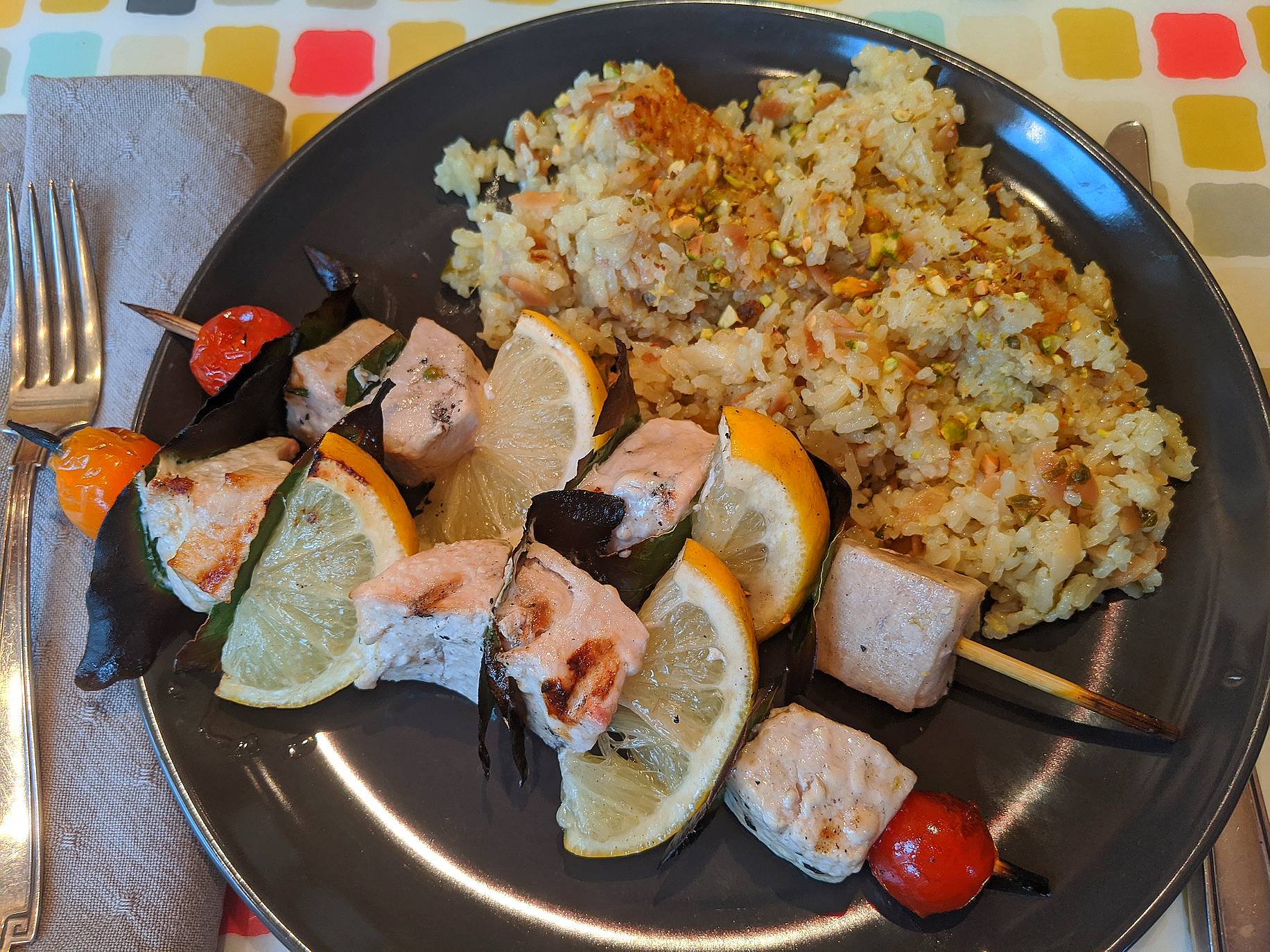
This is a spectacular time for fish in New England, so we’ve decided to take our Greek culinary research seaside. Well, not really seaside, since our backyard grill is a good mile from the ocean. On a recent market run, we were surprised to see fresh swordfish steaks, since this is mainly yellowfin tuna season in New England. But asking the fishmonger, we found that the sword was caught in Canada and landed in New England—close enough to home for us.
When we discovered that the same market had fresh bay leaves—European bay laurel leaves, not the more eucalyptus-scented California bay—we knew we were in business. (They were from Goodness Gardens: goodnessgardens.com/bay-leaves.) Greeks love to thread fresh bay between pieces of swordfish for grilled kebabs. In a pinch, you can soak dry bay leaves for a few hours until they are supple enough to go on skewers.
There’s not a lot to assembling the kebabs. We cut the tuna into about 1-inch cubes, cut a lemon in half lengthwise and then cut thick slices, and picked some thick-skinned cherry tomatoes to punctuate the end of each kebab. We alternated swordfish, lemon slices, and bay leaves between the tomatoes. After a slight drizzle of olive oil over everything, we grilled the skewers for a total of about three minutes over a very hot charcoal fire. Don’t overcook! The fish is done when it’s white and fairly firm.
The bay leaves provide a smoky, tea-like flavor with some bright aromatics to the fish. It was surprising how something so simple really elevated the normally bland flavor of swordfish. The charred lemon slices were perfect for squeezing over the top. We served the skewers with a simple lemon pilaf of rice and orzo topped with some chopped pistachios.
